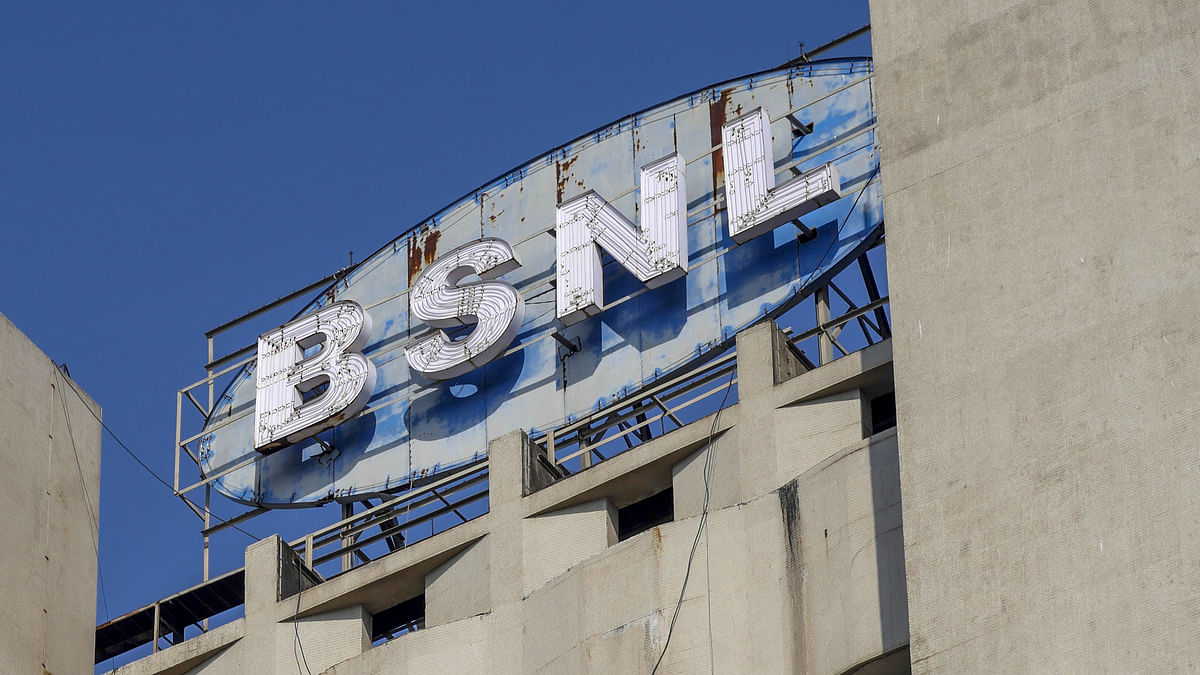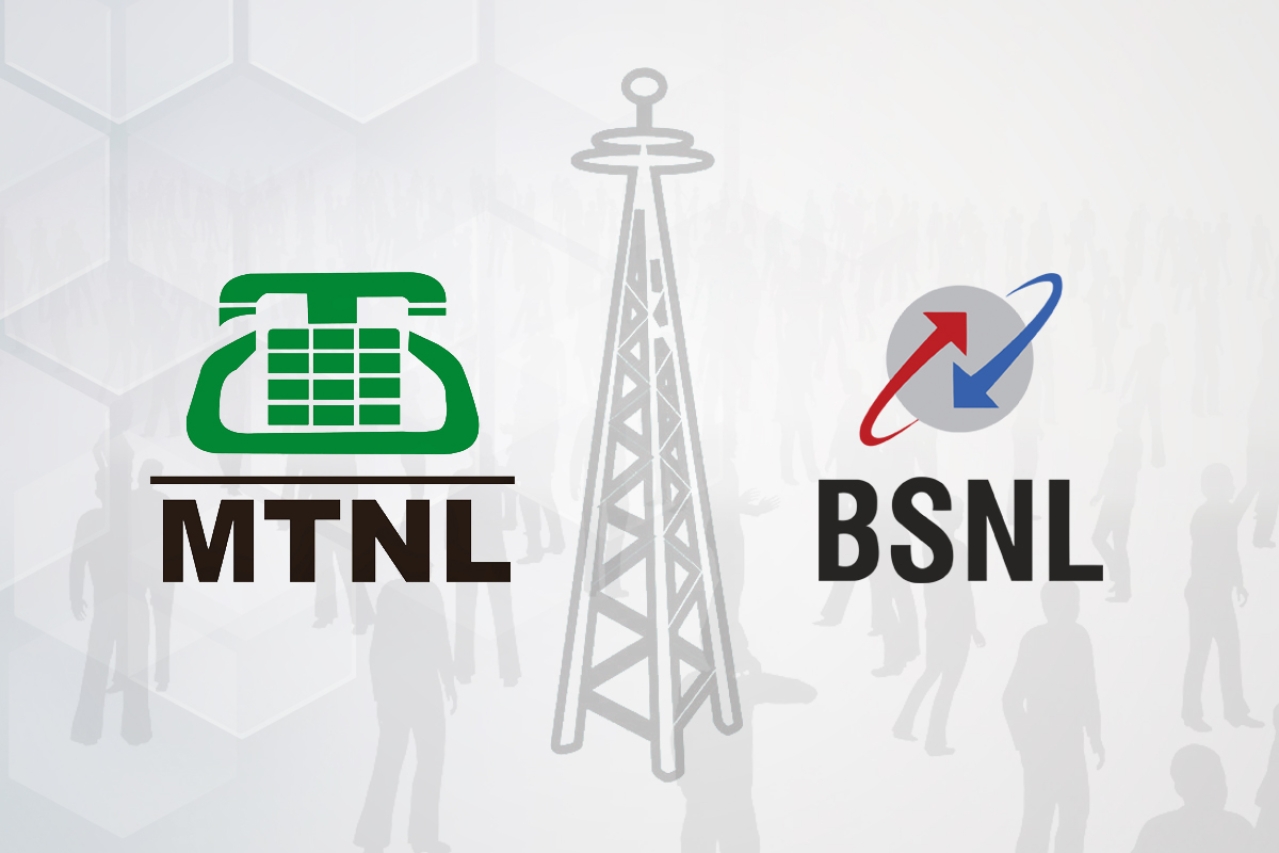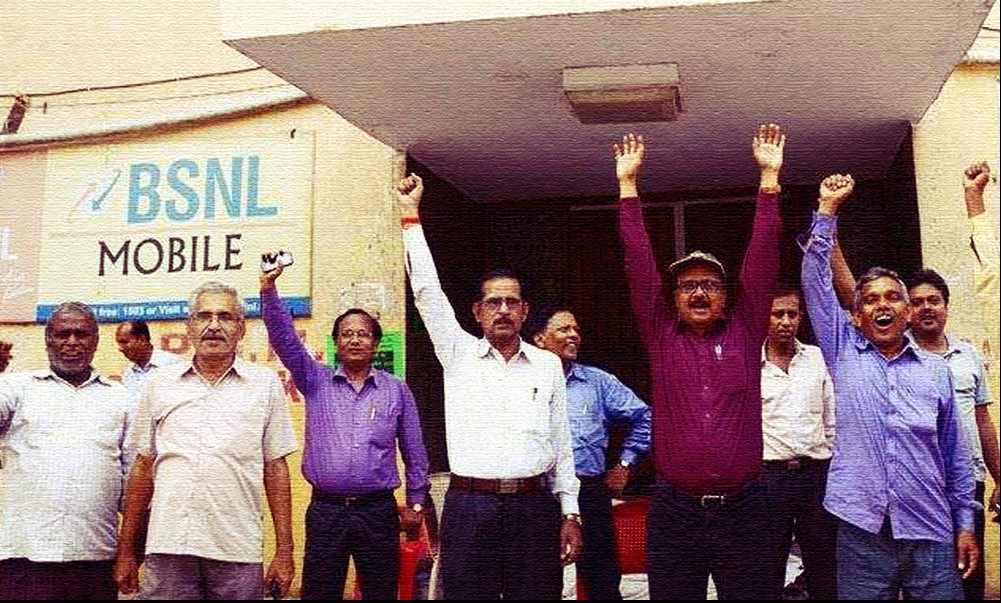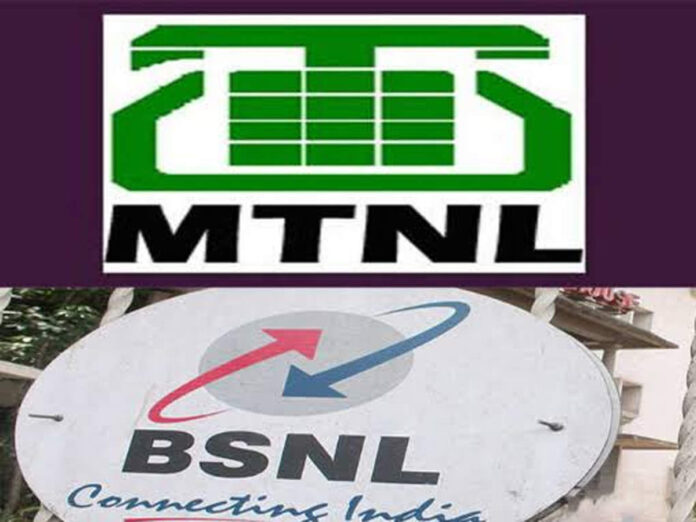Amidst the dark clouds of closure over Bharat Sanchar Nigam Ltd. (BSNL) and Mahanagar Telephone Nigam Limited (MTNL), the Finance Ministry has recommended the shutdown of ailing telecom public sectors.
But the day after this declaration, the employees of BSNL have re appealed the Prime Minister Narendra Modi to reconsider the proposed revival plan through a letter.
K Sebastian, General Secretary of Sanchar Nigam Executives Association has dispatched a letter addressing the PM that the employees are confident that BSNL will recover its position within a span of three to four years and will fetch it towards a profit-making organization.
It is noteworthy that a meeting conducted on September 26 by P K Mishra, Principal Secretary to the PM concluded negatively about the recovery of the organization.

The new appeal has been propelled after the Finance Ministry had rejected a proposal from the Department of Telecommunications (DoT) to pump in Rs.74, 000 crores to recover the deteriorated condition of the PSUs. The Finance Ministry has opinioned that the sickening public sector undertakings should be shut down.
Interestingly, as per the reports, the closure costs have been estimated at approx. 95000 crore which is much higher than the revival cost which has been proposed as Rs. 74000 crore. More closely, Rs. 950000 crore includes the debt repayment cost and also a proposed attractive scheme of VRS to all 1.65 employees. The VRS scheme has not been welcomed by the employees though.
The new appeal to the Prime Minister commenced once again from the employees on this ground.
Ongoing protests
The closure of these broadband companies will jeopardize approximately 2 lakh jobs in these companies. The employees are fuming over the situation, and hundreds of MTNL employees are under hunger strike as part of the protest. The common feeling is that the government has apathy towards the dire situation.
The appeal briefly reveals the following points :
- Conversion of its debt into sovereign guarantee
- Voluntary Retirement scheme after Pay Revision
- To allocate 4G technology through equity infusion.
- To form a Special Purpose Package for repayment of loans
- Land assets monetization.
- Financial support for maintenance of 17000 rural telephone exchanges.
Though the senior officers are not so assertive about these reconstruction plans, the employees are optimistic towards its success.

Back in April 2019, the Government had introduced a VRS scheme to reduce the manpower as part of the cost-cutting plans. The scheme was open to employees ageing over 50 years. The scheme could have fetched revenue impact Rs.6365 crore for BSNL, which has 1.68 lakh man force and, Rs. 2120 crore from 22,000 employees of MTNL.
Minutes of the letter
The employees consent that if government support is extended, they are capable to counterattack the private broadband companies.
In the letter, Sebastian says, “The government did not allot 4G spectrum to BSNL, although BSNL’s 3G service is superior to the 4G service of other operators at various cities, as per Telecom Regulatory Authority of India data.”
The letter further insists that BSNL has a reach at remote places in the country and its optical fibre network covers 750,000 km which is far more significant than other major private broadband players. Reliance network is spread across 325,000 km, Vodafone Idea 160000 km and Airtel covers 250,000 km.
The letter further mentions the relentless nation serving activities performed by the organization during national emergencies and the occurrence of natural calamities.
The company has been targeted for making consistent losses, but it possesses the least debt in this sector compared to other private players. Jio is under 2 lakh crore debt, Vodafone – 1.2 lakh crore, Airtel- 1.13 lakh crore whereas BSNL has only 13,900 crore debt. Swapan Chakraborty of BSNLEU thus asks why the company has been denied to take loans?
The letter is one more attempt to convince the government about their persistent ignored demands. The unions are furious over government policies and are adamant that the large workforce isn’t the real problem.

Amidst the dark clouds of closure over Bharat Sanchar Nigam Ltd. (BSNL) and Mahanagar Telephone Nigam Limited (MTNL), the Finance Ministry has recommended the shutdown of ailing telecom public sectors.
But the day after this declaration, the employees of BSNL have re appealed the Prime Minister Narendra Modi to reconsider the proposed revival plan through a letter.
K Sebastian, General Secretary of Sanchar Nigam Executives Association has dispatched a letter addressing the PM that the employees are confident that BSNL will recover its position within a span of three to four years and will fetch it towards a profit-making organization.
It is noteworthy that a meeting conducted on September 26 by P K Mishra, Principal Secretary to the PM concluded negatively about the recovery of the organization.
The new appeal has been propelled after the Finance Ministry had rejected a proposal from the Department of Telecommunications (DoT) to pump in Rs.74, 000 crores to recover the deteriorated condition of the PSUs. The Finance Ministry has opinioned that the sickening public sector undertakings should be shut down.
Interestingly, as per the reports, the closure costs have been estimated at approx. 95000 crore which is much higher than the revival cost which has been proposed as Rs. 74000 crore. More closely, Rs. 950000 crore includes the debt repayment cost and also a proposed attractive scheme of VRS to all 1.65 employees. The VRS scheme has not been welcomed by the employees though.
The new appeal to the Prime Minister commenced once again from the employees on this ground.

Ongoing protests
The closure of these broadband companies will jeopardize approximately 2 lakh jobs in these companies. The employees are fuming over the situation, and hundreds of MTNL employees are under hunger strike as part of the protest. The common feeling is that the government has apathy towards the dire situation.
The appeal briefly reveals the following points :
- Conversion of its debt into sovereign guarantee
- Voluntary Retirement scheme after Pay Revision
- To allocate 4G technology through equity infusion.
- To form a Special Purpose Package for repayment of loans
- Land assets monetization.
- Financial support for maintenance of 17000 rural telephone exchanges.
Though the senior officers are not so assertive about these reconstruction plans, the employees are optimistic towards its success.
Back in April 2019, the Government had introduced a VRS scheme to reduce the manpower as part of the cost-cutting plans. The scheme was open to employees ageing over 50 years. The scheme could have fetched revenue impact Rs.6365 crore for BSNL, which has 1.68 lakh man force and, Rs. 2120 crore from 22,000 employees of MTNL.
Minutes of the letter
The employees consent that if government support is extended, they are capable to counterattack the private broadband companies.
In the letter, Sebastian says, “The government did not allot 4G spectrum to BSNL, although BSNL’s 3G service is superior to the 4G service of other operators at various cities, as per Telecom Regulatory Authority of India data.”
The letter further insists that BSNL has a reach at remote places in the country and its optical fibre network covers 750,000 km which is far more significant than other major private broadband players. Reliance network is spread across 325,000 km, Vodafone Idea 160000 km and Airtel covers 250,000 km.
The letter further mentions the relentless nation serving activities performed by the organization during national emergencies and the occurrence of natural calamities.
The company has been targeted for making consistent losses, but it possesses the least debt in this sector compared to other private players. Jio is under 2 lakh crore debt, Vodafone – 1.2 lakh crore, Airtel- 1.13 lakh crore whereas BSNL has only 13,900 crore debt. Swapan Chakraborty of BSNLEU thus asks why the company has been denied to take loans?
The letter is one more attempt to convince the government about their persistent ignored demands. The unions are furious over government policies and are adamant that the large workforce isn’t the real problem.

